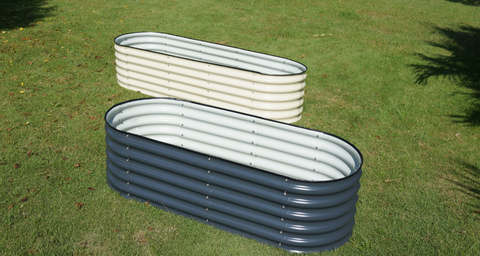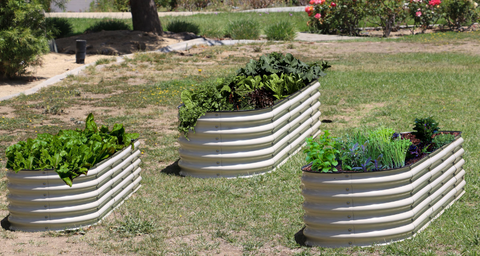Knowledge from Olle Garden Bed: Does Hard Winter Mean Fewer Bugs?
Winter officially begins at the winter solstice, on which the sun no longer dips south. This day is December 21 this year. Cough. In my home, we have seen snow twice. The appearance and feeling of winter make people talk about what it means to garden pests next year. Does severe winter mean less insects? The following content also has some reference value for raised garden beds.

According to recent research, the answer depends on what we mean by severe winter. Insects have about 400 million years to figure out how to survive in the cold, and they are very good at it. From autumn, overwintering insects will accumulate chemicals, limiting the ability of ice crystals to destroy organisms, whether the insects are adults, pupae or eggs. For example, the pupa of cabbage caterpillar can survive at - 25 ° C (- 13 ° F); The eggs of the bean aphid did not begin to break until the temperature dropped to - 34 ° C (- 29 ° F).
This cold weather is usually accompanied by snow, which is beneficial to insects by keeping the temperature stable. Isolated from the weather changes on the surface, cold resistant insects enjoy a quiet and quiet winter in a good snow environment.
Winter, which may cause serious impact on garden pests, is more like ups and downs. There are mild periods between severe freezing, and there is little snow to protect the places where insects like to hide. Overwintering insects repeatedly exposed to freezing and thawing are more likely to die, while those that survive usually lay fewer eggs. In the ups and downs of winter, the previous week is cruel and the next week is warm, which is bad news for overwintering insects.
The changeable weather is also bad for slugs. They are injured by the severe cold. Even if the cold current is followed by a gentle spell, they will keep a low profile after four to five days. In a cool marine climate, slugs are active all year round, and gardens benefit most from unstable winter. However, in very cold climates, slug adults and eggs will remain deep underground until the soil thaws in spring. Then there are slugs like the Spanish slug (Arionvulgaris), which is a cold sensitive species from southern Europe. It successfully invades northern Europe by breeding with local species, thus improving its cold tolerance. Attention of citizen scientists: The John Innes Center is hosting the SlugWatch project, which hopes to track Spanish slugs (sometimes called giant killer slugs) in the UK.

We gardeners pray for a warm spring, so that we can be busy planting, but the cool spring is more difficult for annoying insects. In fact, when spring comes so slowly that plants are one step ahead of pests, insects tend to be easier to manage. However, when the mild weather leads to the early appearance of overwintering insects, their number will increase rapidly, so they are ready and waiting to destroy the tender seedlings.
Therefore, with the arrival of the winter solstice, we must rely on our own observations to observe what impact winter may have on our gardens and the insects that inhabit them. Why not wish the best? With the ancient Winter Solstice ceremony, you may start a new day in the dark, and the candles will be lit by the stems of evergreen leaves. Symbolically, the lighted candle uses fire to call back light, while evergreen trees represent the continuity of life according to the rhythm of nature. Now make your wish.
